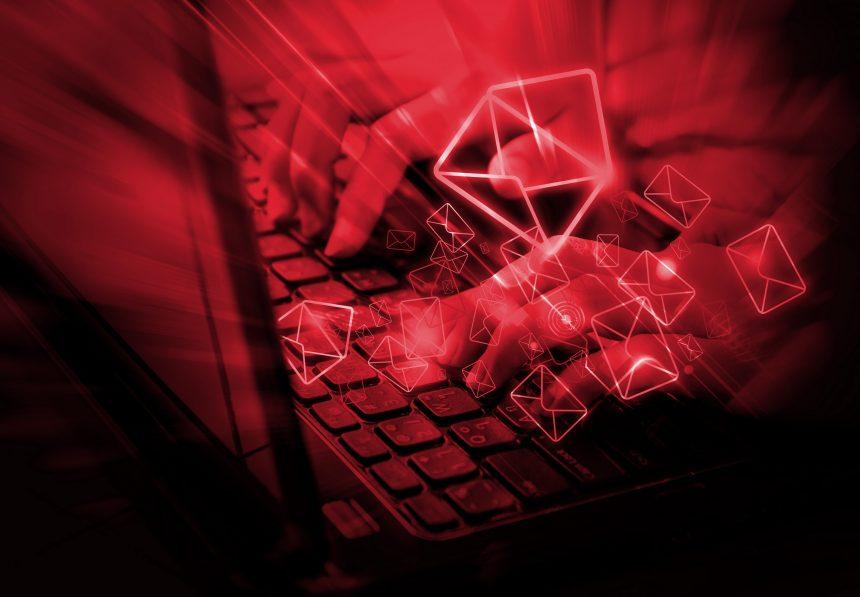Phishing scams are deceptive attempts to obtain sensitive information, such as usernames, passwords, credit card details, or other personal data, by masquerading as a trustworthy entity in electronic communications. These scams typically arrive in the form of emails or messages that appear to come from reputable organizations, luring unsuspecting individuals into providing confidential information or clicking on malicious links.
Download SpyHunter Now & Scan Your Computer For Free!
Remove this and any other malicious threats to your system by scanning your computer with SpyHunter now! It’s FREE!
Specifics of the World Bank Group Overdue Payment Scam
The World Bank Group Overdue Payment email scam is designed to appear as a legitimate notification regarding an overdue payment. The email claims to originate from an official World Bank address, attempting to establish credibility. For example, it may come from an address like “noreply@worldbank.org.”
Email Content and Instructions
The email in question is a phishing scam disguised as a communication from the World Bank Group, claiming that the recipient has been selected to receive a $4,500,000 relief compensation fund due to the economic crisis. It encourages the recipient to contact a claims representative, Mrs. Emily Abdellatif, and to provide personal information such as their full name, occupation, home address, date of birth, sex, and phone number for fund release. The email includes fake reference numbers and fraudulent email addresses (collectorcla0022@gmail.com, reswads5@outlook.com, collectorcla0022@usa.com), along with images of supposed fund recipients.
Providing the requested personal information could lead to identity theft or other fraudulent activities. The scammers may also try to extract fake fees or banking information under the guise of accessing the funds. It is crucial for recipients to be cautious with such emails and to refrain from sharing personal information or making any financial transactions to avoid potential loss or identity theft.
The email typically includes alarming instructions, urging the recipient to take immediate action to settle the alleged overdue payment. It may state:
- A claim that the recipient owes a substantial amount of money.
- A deadline for payment to avoid further penalties or legal action.
- Instructions to click on a provided link to “resolve” the issue or to download an attached invoice.
Text presented in the “World Bank Group – Overdue Payment” email letter:
WORLD BANK GROUP
Head office: The World Bank Group
Washington, DC 20433 United States
Customer Ref: WBGUST647TDH
FOREIGN EXCHANGE UNIT
CREDIT SECTION FUND MONITORING AND AUTHORISATION DEPARTMENT
CONFIRMATION OF OVERDUE PAYMENT
Attn: Active Email Beneficiary.
RE: Approved On-Hold Fund of $4,500,000.00
This message serves to inform you that the joint agencies with the Board of Directors of the World Bank Group and the Chase Bank with Department of the Treasury of the United States have finally concluded an arrangement towards the approval of On-Hold, Covid-19 Relief Fund, Contracts, Investment, Lotto and Inheritance Funds in financial support to individuals and private sector due to current World economic crises to help eradicate poverties and boost businesses in societies through active email address as the key identification for setting up online accounts with all valid email addresses in the Worldwide.
Your active email address has been selected and listed among the 10 Million active email address in our database on first 5,000 people to benefit from the Relief Compensation Funds approved in tune of US$4,500,000.00 (Four Million Five Hundred Thousand United States Dollars Only) Moreover, due to lack of cooperation and communicating with Bank officials, the Relief Compensation funds has kept Unpaid till date, in view to this, The World Bank Group in conjunction with the Chase Bank and Department of the Treasury, United States has agreed to release all the On-Hold funds immediately to the beneficiaries allocated at this first category without further delay since we are at the end of the financial year 2024.
NOTE; You will receive your payment from our authorized paying Bank through Bank to Bank transfer OR Certified International Unlimited Debit Master/Visa Card.
Therefore, we advise you to contact our Regional claim representative officer immediately and reconfirm your details below to enable our authorised paying bank to release the relief compensation fund of US$4,500,000.00 (Four Million Five Hundred Thousand United States Dollars Only) due for you. Name: Mrs Emily Abdellatif Email:
collectorcla0022@gmail.com / reswads5@outlook.com / collectorcla0022@usa.com
Kindly quote the payment Reference.No: WBCBOEHMTUS57856
Your Full Name:
Occupation:
Country of Origin:
Home address:
Date of Birth:
Sex:
Tel No:
Relief Compensation Amount:
Congratulations.
Sincerely Yours,
Mr Jun Anthony
Director Relief Compensation Fund
The World Bank Group.
Purpose of the Scam
The primary goal of this phishing scam is to extract sensitive financial information from the victim or to trick them into downloading malware disguised as an invoice. Scammers may also aim to harvest login credentials for banking or financial accounts, leading to direct theft of funds.
Common Reasons for Encountering Such Scams
Individuals may encounter this scam due to:
- Misleading subject lines suggesting urgent action required.
- Familiarity with the World Bank Group, creating an illusion of legitimacy.
- The increasing prevalence of financial transactions and digital communications, making such scams appear more plausible.
Similar Threats
Readers may encounter various similar phishing scams, including:
- IRS Tax Scams: Fake notifications claiming overdue taxes.
- Bank Account Alerts: Emails mimicking bank communications regarding account security issues.
- Payment Processing Scams: Notifications claiming payments are due from services like PayPal or credit card companies.
Removal Guide: Eliminating Associated Malware
If you suspect that your system may be compromised due to this scam, follow these steps to remove any associated malware:
Download SpyHunter Now & Scan Your Computer For Free!
Remove this and any other malicious threats to your system by scanning your computer with SpyHunter now! It’s FREE!
Step 1: Disconnect from the Internet
Immediately disconnect your device from the internet to prevent further data leakage or communication with the malware.
Step 2: Enter Safe Mode
- Restart your computer.
- For Windows, repeatedly press F8 (or Shift + F8) as it boots to access the Advanced Boot Options.
- Select “Safe Mode with Networking.”
Step 3: Run a Malware Scan
- Download SpyHunter.
- Click on the download link and install the application.
- Open SpyHunter and perform a full system scan to detect any threats.
- Follow the prompts to remove detected malware.
Step 4: Delete Suspicious Emails
- Open your email client.
- Delete any suspicious emails, including those related to the World Bank Group scam.
Step 5: Change Passwords
- Change passwords for sensitive accounts, especially those linked to financial information.
- Use strong, unique passwords for each account.
Step 6: Update Your System
- Ensure your operating system, browser, and antivirus software are up to date.
- Enable automatic updates for future protection.
Further Prevention Measures
To prevent falling victim to similar scams in the future:
- Verify Email Sources: Always check the sender’s email address for authenticity.
- Be Cautious with Links: Hover over links to see the destination before clicking. Avoid clicking on links from unknown senders.
- Educate Yourself: Stay informed about common scams and phishing techniques.
- Use Anti-Malware Software: Regularly scan your system with reputable anti-malware tools like SpyHunter to detect and remove potential threats.
Conclusion
Phishing scams like the World Bank Group overdue payment email can lead to severe consequences for individuals who fall prey to them. By recognizing the signs of such scams, understanding their purpose, and following proper security measures, you can safeguard your personal information and financial security. Download SpyHunter today and scan your computer for free to ensure your system remains protected against phishing scams and malware.





